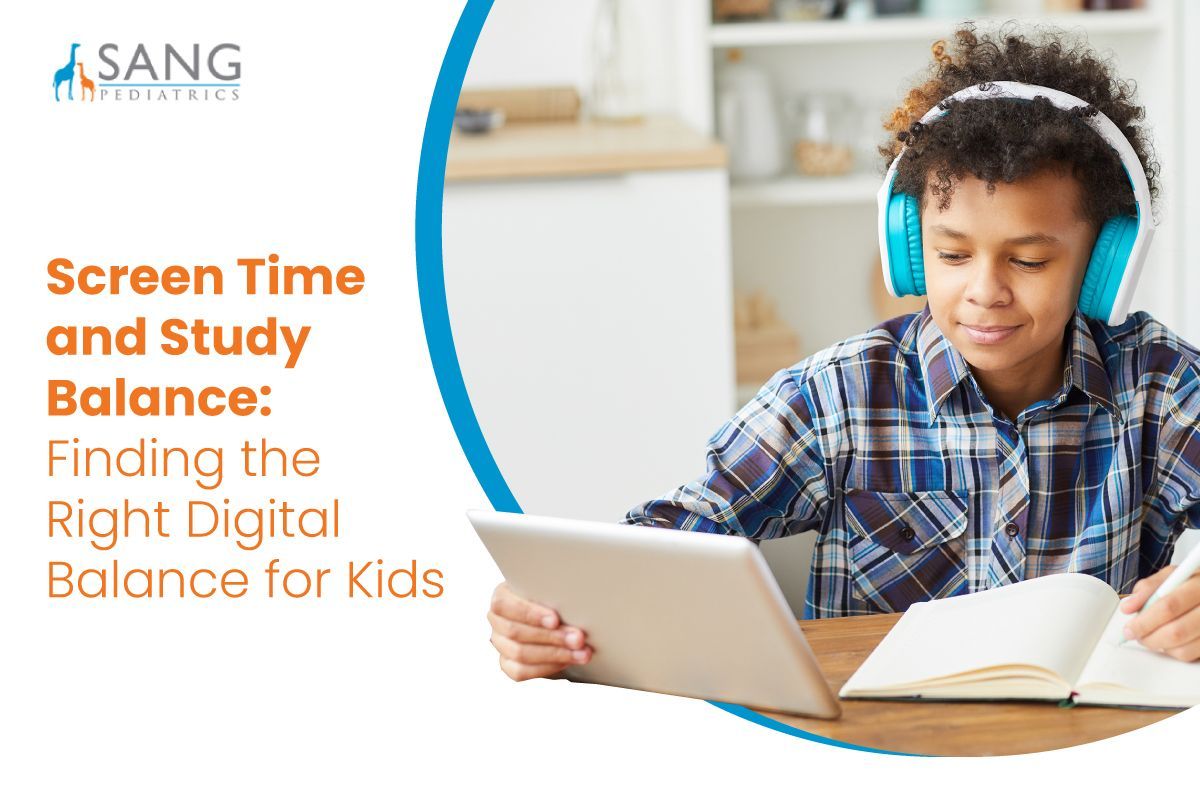Screen Time and Study Balance: Finding the Right Digital Balance for Kids

In today's digital world, screens from smartphones, laptops, tablets, and TVs are becoming integral to our lives. Our children also have exposure to these digital devices, including screen time in schools and personal use at home for entertainment. According to the Pew Research Center, 71% of parents with children under 12 are concerned that their child spends too much time in front of a screen, with 31% being very concerned. But how much screen time is too much for kids?
This article will delve into the concerns raised by parents and explore the benefits and risks of screen time for children. Additionally, we will provide essential tips and recommendations for managing screen time effectively, helping parents and caregivers find the right digital balance for their children.
Children and Screen Time
What Does Screen Time Refer To?
Screen time is the term used to describe the activities done before a screen. It includes the time spent using electronic gadgets such as:
- Watching television
- Playing on a gaming console
- Using a mobile phone or tablet
- Working on a computer or laptop
Screen Time: The Pros and Cons
The content's type, quality, and context could positively or negatively impact your child's development. Some of the benefits of screen time include:
- Fostering creativity and imagination
- Offering entertainment and relaxation
- Supporting social and emotional skills and connections
- Learning early language and how to read and write
However, too much, or inappropriate, screen time also affects children's well-being by:
- Impairing cognitive and academic performance
- Interfering with your child's sleep quality and quantity
- Exposing children to harmful or inappropriate content and cyberbullying
- Harming your child’s help due to physical inactivity
Parents should promote low screen time for young children to ensure a healthy and balanced lifestyle.
What is the Best Screen Time Limit?
It is challenging to keep track of your child's screen time. However, it's necessary to implement a screen-time plan right from the start, as your child is always young enough to develop healthy screen habits. The American Academy of Child and Adolescent Psychiatry, or the AACAP, provides the following guidelines for screen time limits by age:
- Under 18 months: Limit screen use to video chatting with an adult, such as a parent out of town.
- 18 to 24 months: Introduce screen time for watching educational programming with a caregiver.
- 2 to 5 years: Limit non-educational screen time to approximately 1 hour per weekday and up to 3 hours on weekends.
- 6 years and older: Encourage healthy habits and set limits on-screen activities.
Adhering to age-appropriate screen time recommendations can foster your child's healthy development and ensure a balanced digital experience throughout their growth. Implementing these guidelines early on will set the foundation for a well-rounded and thriving childhood.
Ways to Limit Screen Time Effectively
The key is not to get rid of all screens for your children but to manage and control their use in a way that helps them have a well-rounded and satisfying childhood. Aside from limiting screen time, here are some ways to make that happen:
- Create Screen-Free Zones: Designate specific areas in the house where screens are not allowed, such as the dining area and bedrooms.
- Share Screen Time Together: Spend quality time while monitoring children’s screen time by watching videos and playing games together.
- Encourage Offline Activities: Promote hobbies and activities that do not involve screens, such as reading, sports, arts, and outdoor play.
- Be a Role Model: Set a good example by not spending more than two hours daily in front of a computer. If you follow your own rules, your children will be more likely to do the same.
These practical strategies will help your child develop a healthy relationship with technology and find the right digital balance for their health and academic success.
Frequently Asked Questions (FAQ) About Time and Study Balance and Finding the Right Digital Balance for Kids
Are there any apps or tools to track screen time?
Answer: Various apps and tools help you monitor your child's screen time. Popular options include built-in features on iPhones/iPads and Android devices and dedicated applications for parental control and monitoring. Here are some of these applications that you can try:
- Qustodio Famisafe
- Screen Time
- Kaspersky Safe Kids
Why is it important to balance screen time and offline time?
Answer: Striking a balance between screen time and offline activities is crucial for maintaining a healthy and well-rounded lifestyle. Excessive screen time can hurt your child's physical health, mental well-being, and social interactions. Achieving a harmonious equilibrium between "screen time vs. offline time" promotes physical activity, enhances cognitive development, fosters meaningful relationships, and encourages creativity and imagination.
Find the Right Digital Balance for Your Children with Expert Guidance
As parents, finding the right digital balance for children is crucial in today's technology-driven world. Employing practical strategies to limit screen time and exploring the pros and cons of digital exposure will empower you to foster a healthy and well-rounded childhood experience for your beloved children.
Ready for your child's first step toward a balanced digital journey? Look for "screen time pediatrics" and "normal screen time consultants" to connect with the experts at Sang Pediatrics. We understand the challenges of managing screen time for kids, and we're here to help you navigate the world of screens, ensuring a brighter and healthier future for your little one. Call us at (559) 268-1737 to schedule an appointment.












